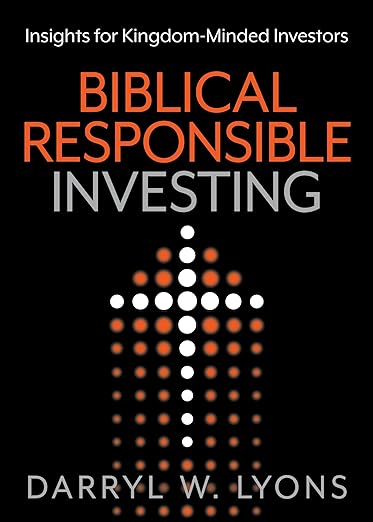
Biblical Responsible Investing: Insights for Kingdom-Minded Investors
(Morgan James Faith 2024)
$12.99
The notorious bank robber Willie Sutton was asked by a reporter why he robbed banks, and his reply was, “That’s where the money is.” The scope of wealth held by the Christian community is enormous (55 percent of the world’s wealth), and that is where the money is. If you combine this scope of wealth with a Christian community that is quick to trust others, you have a situation ripe for con artists — the con artist who carries a Bible. Bible-carrying con artists know that the currency within the Christian community is trust, and they exploit it.
Some of those con artists are disguised as financial advisors. Because many Christians are motivated to save, many financial advisors will target the audience at church. For many, it is part of their marketing strategy. I love going to church, but it is a sacred time for me, and I prefer not to talk about money or business while worshiping. But for this kind of con artist, hallway talk at church is a preferred strategy. These financial advisors may join a men’s group or a Bible study with the sole purpose of solicitation, and they are so smooth that it’s hard to distinguish the insincerity.
Recently, within our community, there was a financial advisor who was highly visible and ran very professional commercials that elevated his reputation. His public profile created a perception of credibility. As a result, he convinced many Christians in the community to invest, not in publicly traded securities, but rather in his own business. He used elderly clients’ retirement money to buy the commercials and perpetuate his image. When I realized the scope of his scheme, I searched his background on the FINRA website. I noticed a material misrepresentation in his public background stated on the FINRA website compared to his “about me” page on his public-facing website. The regulators didn’t take long to crack down, fine him, and serve him jail time. However, many of those clients never recovered their lifetime of savings.
Because Christians are motivated by stewardship, they can become a target for con artists to mislead them — into buying into a startup, for example. We had another situation in our community where a con artist with a Bible was moving money from clients’ retirement accounts into startup companies. Educated and sophisticated investors were lured into owning part of the next Apple, Bank of America, or Facebook; they always regretted the time decades ago when they had passed on the opportunity to buy companies in their startup phase, and these investors didn’t want to miss out twice. However, they didn’t know this businessperson was getting a very handsome commission — and for worthless company stock. The companies in question were ridden with high debt, low revenue, and negative cash flow. The Securities and Exchange Commission (SEC) eventually spoiled his scheme, but people still lost millions in retirement savings.
As the movement of Christians being intentional with their money grows, more and more con artists will come preying — not praying — and take advantage of trust. We all need to be on the lookout for con artists in the Christian community. They could be self-proclaimed Christian financial advisors who have obtained the proper licensing but operate with unauthentic motives. Or they could be friends from church soliciting capital for a new venture beyond the scope of a client’s risk tolerance. We must all work together to protect our friends, the elderly, and the community from these con artists carrying a Bible.
This article is an excerpt from Biblical Responsible Investing: Insights for Kingdom-Minded Investors (Morgan James Faith 2024) by Darryl Lyons. Used with permission.





